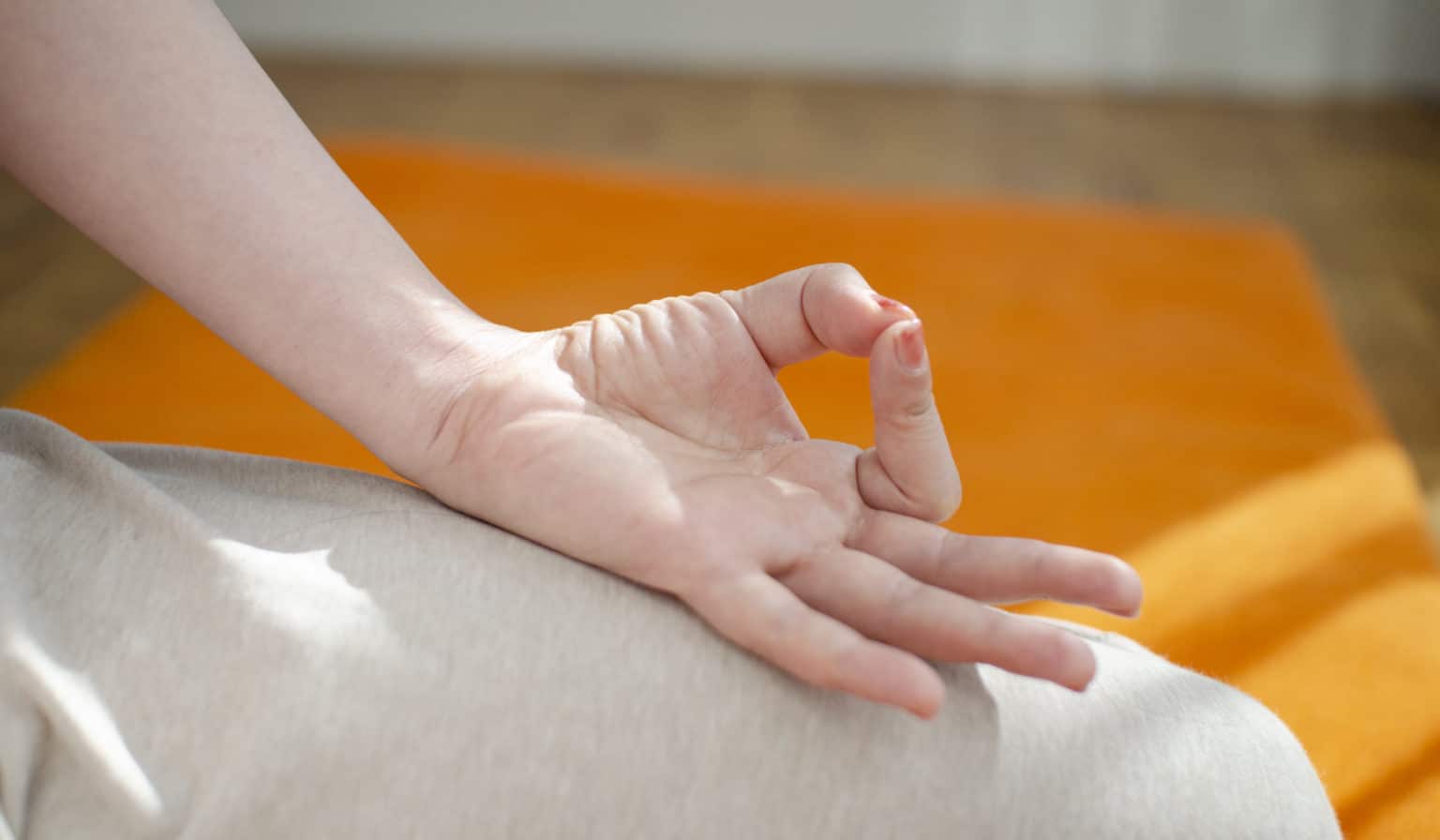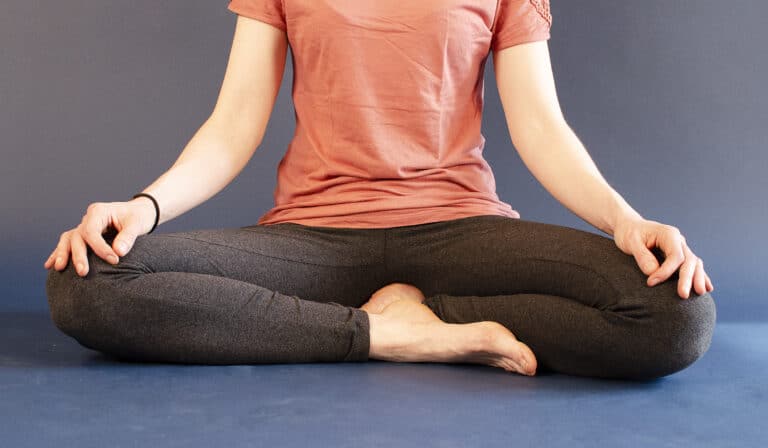If you just started out meditating or are considering starting, you might be asking yourself how much you need to meditate to get real effects. Meditation is frustrating in the beginning. But the results do come fast enough, and they slowly get better and better. Read this article to understand how long time it takes for you to benefit from meditation. I will also reveal a way to benefit from meditation faster with the help of complementary practices.
State and trait effects
There is an important distinction to make between two types of effects you will get out of your meditation practice. The first is the state effect. That is, meditation gently modifies your state of consciousness. The temporary state effect can be observed already during practice and wanes off afterwards.
The second type of effect is the trait effect. When you repeatedly meditate over time, the practice alters your nervous system, internal chemistry and even genetic expression. The states brought forth become solidified physically. This creates a virtuous cycle since your new physiology will make you an even more proficient meditator.
The time you put into meditation is crucial for the results
Asking how much you should meditate is relevant as it is one of the most decisive factors for the outcome of your practice. The amount of practice you accumulate depends on the frequency and the duration of your meditations.
It is crucial to make meditation a regular habit. It is better to meditate a little regularly than to meditate intensely but irregularly. Once a day is an excellent rhythm if you are interested in reaping real benefits of mindfulness style meditation.
Measurable state effects come quickly
Scientists can measure results after only minutes of meditation. However, as a beginner, these effects are weak, and you will soon be back to your normal state once the meditation is over. You want more than measurable effects. You want effects that make a real difference.
The minimum duration required for a small real effect
If a scientifically measurable effect is detectable in a few minutes, how long do you need to meditate to get real effects that you can feel yourself? Enthusiastic beginners sometimes testify that meditating for five minutes a day, or even less, has a tangible impact on their lives. However, I remain sceptical of the value of such practice.
Though there is a small measurable effect of such short meditations, the perceived benefits mostly come from the placebo effect and one’s positive expectations. I would say that as a very minimum, you need 10 minutes of daily meditation to get a light yet noticeable impact that you can perceive yourself.
Some teachers legitimise mini-meditations with the motivation that little is better than nothing. I think we can raise the bar a bit. There is usually a lot you can cut down on to make the time for meditation.
You can completely neutralise the adverse effects of stress
If you are interested in robust benefits from meditation, you should consider following the advice of Herbert Benson, a pioneering meditation researcher at Harvard Medical School. He was the one who first discovered the positive effects meditation has on our bodies and nervous systems. Benson calls the effect that meditation induces “the relaxation response“.
According to Dr Benson you can neutralise the adverse effects of stress with 20 minutes of meditation, twice daily. For a robust routine that can fit into the life of most of us, I think this amount is a good starting point.
Goenkas recommendation for ambitious meditations
The late meditation teacher Goenka suggested meditating for one hour twice daily. While this will give outstanding results, it requires quite a bit of motivation. Two hours a day is suitable for some avid meditators, but it is in the upper range of what people with normal obligations can fit into their lives.
After how long can you see results from meditation?
For most people, meditation is quite disappointing in the beginning. You struggle with restlessness, bodily pain and racing thoughts. When one is in this phase, it is easy to despair and wonder when the results will come. How long you will need to persevere depends on how long your sessions are and how often you meditate. With a daily practice of 10 to 20 minutes, you should see positive results from within a few weeks to a couple of months.
Reaping the first benefits
As your practice matures, your sessions will more frequently be enjoyable, and you should be able to sense the state effect both during and after the sessions.
You will be able to notice how mental tensions dissolve as you meditate, and that gives you inner lightness. Your thoughts will become less dense and less invasive. You will be able to perceive them as fleeting thoughts and ideas rather than as something that is a part of who you are. Once energy bound in thoughts is released, you will experience an energetic surplus.
Physically your stress level will drop, and your parasympathetic nervous system will more easily kick in to initiate natural healing. A stronger parasympathetic nervous system will make your general health better, and it will make you more resilient to illnesses. Mentally your anxiety level will drop and allow you to face life’s challenges with more calm.
Furthermore, as a regular meditator, you will find it easier to concentrate and more natural to be present in whatever you have chosen to do at the moment.
A journey of a thousand miles
Scientific studies have shown that long-time meditators display remarkable trait effects. Getting such results might be your motivation to start with. However, the subjects who exhibit these traits count their accumulated meditation time in the thousands or even ten thousands of hours.
A Chinese proverb states that even a journey of a thousand miles begins with a single step. If you want to benefit from the deep-going trait effects of meditation, time is luckily on your side. With assiduity, you can soon enough count yourself among experienced meditators. If you follow Benson’s recommendations and meditate 40 minutes per day, it would only take you a little more than four years to complete your first thousand hours. If you meditate for two hours a day as Goenka suggests, you will accumulate 7300 hours within ten years.
How much meditation is right for you?
The more meditation you can comfortably fit into your life, the better. But ultimately it is your life situation and your motivation that decides how much is right for you. If you push your meditation practice beyond what is compatible with your motivation level, you risk being discouraged. You want to make meditation a lifelong project. For me, it has always worked to do a little less than I want to do. That way, I am always eager to practice more.
Get more from meditation by combining methods
If you are struggling with your meditation practice, you should know that there is a way to get into it quickly. In the yoga tradition meditation is an essential component, but we also use a host of complementary methods that prepares the body and the mind. Yoga poses, breathing exercises, yoga nidra and other techniques remove restlessness, improve calmness and concentration before you attempt meditation.
By placing meditation at the end of a long session of yogic techniques, it becomes much more accessible and profound, even for beginners. Adding a weekly 2h plus session to your daily meditation practice will be an inspiring complement. A session that lasts more than two hours does not feel long when you combine complementary yogic techniques. Most practitioners say they don’t even feel the passing of time.
You are likely to perceive the benefits of a well-crafted yoga and meditation class after as little as one session. With long sessions, you do not have to practice daily for real results. Most of my students think that one session a week gives them benefit.
You can experience this kind of traditional meditative yoga on my website Forceful Tranquility.
Key takeaways
So what is the bottom line, how long do you need to meditate to get real effects?
1. Though measurable effects can be detected very quickly, to get real results you need as very minimum to meditate ten minutes per day. To get a good result that has a major impact on your physiology meditate twice a day for 20 minutes.
2. Meditation is a long term project, a habit to keep for your entire life. To get your mind and physiology deeply transformed by meditation you need to accumulate thousands of practice hours.
3. The more meditation you can comfortably fit into your life, the better. However, avoid pushing yourself too hard to stay motivated.
4. You can get more out of meditation by combining it with yoga poses, breathing exercises and deep relaxation.




